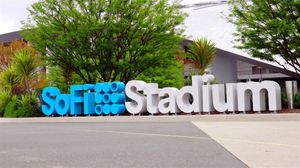The "Cancer Immunotherapy Market Size and Share Analysis - Growth Trends and Forecast Report 2025-2033" has been added to ResearchAndMarkets.com's offering.
The Global Cancer Immunotherapy Market stood at USD 105.7 billion in 2024 and is expected to grow to USD 254.6 billion by the year 2033 at a CAGR of 10.26% from 2025 to 2033.
This growth is being fueled by the growing incidence of cancer, research on targeted therapies, growing awareness regarding the advantages of immunotherapy, and increased research and development efforts on innovative therapy options that increase patient survival and outcomes.
Global Cancer Immunotherapy Market Outlook
Cancer immunotherapy is a treatment that utilizes and amplifies the body's own immune system to recognize, attack, and destroy cancer cells. In contrast to conventional therapies such as chemotherapy and radiation, immunotherapy acts more specifically against cancer by activating the body's natural defenses. Some of the most common are immune checkpoint inhibitors, CAR T-cell therapy, monoclonal antibodies, and cancer vaccines. They are employed in the treatment of many different cancers, such as melanoma, lung, bladder, kidney, and some blood cancers.
The popularity of cancer immunotherapy has increased tremendously across the globe because it can enhance survival and quality of life for patients with resistant or advanced cancers. Its long-term impact and minimal invasiveness have made it the first option in oncology. Top pharmaceutical firms and research centers worldwide are making huge investments in the development of immunotherapy. With increasing awareness and access, cancer immunotherapy is increasingly becoming an integral part of contemporary cancer treatment, transforming the treatment of cancer in various populations.
Growth Drivers in the Cancer Immunotherapy Market:
Increasing Global Cancer Incidence: The increasing incidence of cancer worldwide is one of the main drivers of demand for immunotherapy therapies. Cancer is one of the most common causes of death globally, according to the WHO, with cases predicted to increase dramatically over the next few decades. The trend has been driving more investment in innovative and effective treatments, including immunotherapy, which provides targeted, less toxic treatment. Governments and healthcare organizations are also focusing on early detection and high-tech therapies, further driving market growth. The increased burden of disease still calls for new treatment options worldwide. An estimated 20 million new cancer cases and 9.7 million deaths occurred in 2022. The number of individuals who survived for 5 years after having cancer was estimated at 53.5 million. Approximately 1 in 5 individuals get cancer during their lifetime, around 1 in 9 men and 1 in 12 women succumb to the disease.
Technological Advancements and Innovation: Innovations and rapid developments in biotechnology and immuno-oncology have led to better and more tailored cancer immunotherapies. Methods like CAR T-cell therapy, immune checkpoint inhibitors, and next-generation monoclonal antibodies have significantly improved treatment outcomes. These advancements not only increase survival rates but decrease relapse rates as well. The incorporation of artificial intelligence into drug discovery and biomarker analysis has speeded up research and development, which has made immunotherapy more affordable. Ongoing breakthroughs will further enlarge the market with new, highly targeted cancer-fighting treatments. Nov. 2024, India becomes the third nation, following China and the US, to gain access to the next-generation PD-1 inhibitor Toripalimab, which, in combination with regular chemotherapy, has demonstrated a 48% decrease in the risk of disease progression or death from nasopharyngeal carcinoma.
Increasing Research & Development Funding: Increased government and private funds allocated for cancer research have greatly accelerated the growth of immunotherapies. Many biotech firms and pharmaceuticals are in partnership with research institutes to discover new immuno-oncology therapies. Such funds cover preclinical studies, clinical trials, and regulations, enabling quicker product launches. Global cancer organizations and advocacy groups also actively work towards awareness and donations, which has encouraged innovation. With increased investments in innovative cancer treatment technologies, the immunotherapy products pipeline keeps growing. In April 2024, the Irish government invested more than 50 million euros in the treatment of cancer and 37.6 million euros in research on cancer as part of the National Cancer Strategy. The existence of corporations such as Bayer AG, AstraZeneca, and Immunogen has also added to market expansion.
Challenges in the Cancer Immunotherapy Market:
High Cost of Treatment: Even though it is effective, the high price of cancer immunotherapy is a big obstacle, particularly in developing nations. Therapies like CAR T-cell therapy can be very expensive, costing hundreds of thousands of dollars, and thus restrict patient access. The pricing also puts pressure on public healthcare systems and insurance companies. Moreover, the cost of research, clinical trials, and regulatory affairs adds to the end-user pricing. The absence of uniform reimbursement policies in different regions worsens the cost burden, deterring the use of immunotherapy despite its therapeutic value.
Variable Patient Response and Side Effects: Cancer patients do not all respond well to immunotherapy, with variable treatment outcomes. Some have minimal or no benefit, while others will experience toxic immune-related adverse effects like inflammation, autoimmune responses, or organ toxicity. This uncertainty in treatment response creates challenges in the standardization of therapy. Furthermore, the intricacy of determining the right biomarkers for patient selection further restricts the universal use of immunotherapies. This has prompted the demand for companion diagnostics and customized treatment protocols.
Cancer Immunomodulators Market: Cancer immunomodulators are a significant growth-driving segment within immunotherapy. These drugs affect the immune response to cancer by boosting the natural ability of the body to fight tumors. Commonly used immunomodulators are cytokines, interleukins, and interferons. They have greatest efficacy in melanoma and hematological cancers. As clinical performance continues to achieve success, global demand for immunomodulators has increased sharply. Biopharmaceutical firms are heavily investing in the creation of next-generation immunomodulators with enhanced efficacy and reduced side effects. With advancements in research and the introduction of new delivery mechanisms, the immunomodulators segment is set to experience steady growth.
Cancer Monoclonal Antibodies Market: Monoclonal antibodies are among the most commonly applied immunotherapies in oncology. These engineered molecules in the laboratory specifically bind to antigens found on cancer cells, allowing the immune system to kill them more effectively. Drugs like trastuzumab (breast cancer) and rituximab (lymphoma) have shown excellent efficacy. Their increasing application in a variety of cancer types, coupled with ongoing R&D to make them more specific and less prone to side effects, is driving market growth. Biosimilars are also increasing patient access, especially in cost-conscious markets. With each new target discovery, the monoclonal antibodies market will grow.
Lung Cancer Immunotherapy Market: Lung cancer, the most prevalent and fatal cancer worldwide, has seen a major trend towards immunotherapy as an initial treatment. Immune checkpoint inhibitors such as pembrolizumab are now standard therapy for non-small cell lung cancer (NSCLC). Immunotherapies enhance survival rates and provide options for chemotherapy-resistant patients. Given the heavy burden of lung cancer worldwide, research into new combinations of immunotherapies goes on. Moreover, rates of smoking-induced cancer in emerging nations are rising, expanding the market base. Government policies promoting early detection and novel treatment solutions further drive the growth of this segment.
Breast Cancer Immunotherapy Market: Breast cancer immunotherapy is picking up pace with the discovery of immune checkpoint inhibitors and monoclonal antibodies. Immunotherapies such as atezolizumab have demonstrated potential, particularly in triple-negative breast cancer (TNBC), a type hard to treat with conventional therapies. The integration of immunotherapy with chemotherapy or targeted therapy is being investigated to enhance effectiveness. Since breast cancer is one of the leading cancers diagnosed among women globally, demand for new treatments is substantial. Clinical trials and regulatory clearances in the pipeline are anticipated to bolster this market segment tremendously in the years to come.
Colorectal Cancer Immunotherapy Market: Colorectal cancer immunotherapy is being incorporated into treatment protocols more and more, especially for mismatch repair-deficient (dMMR) or microsatellite instability-high (MSI-H) patients. Agents nivolumab and pembrolizumab have shown better results in these populations. For the general population of colorectal cancer patients, though, immunotherapy remains struggling with efficacy. Studies are working towards overcoming resistance pathways and improving T-cell infiltration into tumors. With colorectal cancer one of the major causes of cancer death globally, there remains great potential for expansion in this category.
Cancer Immunotherapy Cancer Research Center Market: Cancer research centers are at the forefront in developing immunotherapy. The Dana-Farber Cancer Institute, MD Anderson Cancer Center, and Europe's Institut Gustave Roussy are among the major global leaders in immuno-oncology innovation. These facilities not only carry out advanced research but also engage in multinational clinical trials and train experts in new therapies. Partnerships between academic institutions and biotech firms facilitate quick development and commercialization of new treatments. With more government and philanthropic support, cancer research facilities play a crucial role in bringing basic research to clinical practice, propelling the immunotherapy market growth.
Key Attributes:
| Report Attribute | Details |
| No. of Pages | 200 |
| Forecast Period | 2024 - 2033 |
| Estimated Market Value (USD) in 2024 | $105.7 Billion |
| Forecasted Market Value (USD) by 2033 | $254.6 Billion |
| Compound Annual Growth Rate | 10.2% |
| Regions Covered | Global |
Companies Featured
- Amgen Inc.
- AstraZeneca
- Bayer AG
- Bristol-Myers Squibb Company
- Pfizer Inc.
- Novarts AG
- Johnson & Johnson
- Eli Lily Company
- Seattle Genetics Inc
For more information about this report visit https://www.researchandmarkets.com/r/x8alyg
About ResearchAndMarkets.com
ResearchAndMarkets.com is the world's leading source for international market research reports and market data. We provide you with the latest data on international and regional markets, key industries, the top companies, new products and the latest trends.
View source version on businesswire.com: https://www.businesswire.com/news/home/20251007887839/en/
Contacts
ResearchAndMarkets.com
Laura Wood, Senior Press Manager
press@researchandmarkets.com
For E.S.T Office Hours Call 1-917-300-0470
For U.S./ CAN Toll Free Call 1-800-526-8630
For GMT Office Hours Call +353-1-416-8900





